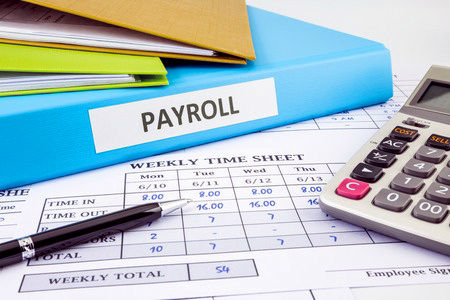Latest News
- Bay Area Employers: Shelter in Place Order Extended
(posted: Apr, 2020)SIP extended through May 31st. The SF Bay Area will continue to shelter in place through the end of May, even as other parts of the U.S. begin to reopen.
Latest Blog
- Bay Area Counties Issue New Order, SIP thru May
(posted: Apr, 2020)
The 6 counties are extending SIP through the end of May, but are also easing restrictions in a few key areas like construction.
Court: CA Employers Must Pay Employees for Every Minute of Work
(posted: August 13th, 2018)

In July, the California Supreme Court ruled in Troester v. Starbucks that California employers must pay their non-exempt employees for all time spent (even just a few minutes) performing work-related tasks after clocking out. The Supreme Court's decision has major ramifications for California employers.
In the Troester case, Starbucks' Shift Supervisor Douglas Troester argued that the four to ten minutes a day he spent on tasks after clocking out, such as uploading sales data, logging off the computer, activating the alarm and locking the front door, should be compensated. Over the 17-month period of his employment, Troester's unpaid time totaled approximately 12 hours and 50 minutes. At the then-applicable minimum wage of $8 per hour, this unpaid time added up to $102.67.
Starbucks, on the other hand, argued that California should follow the federal de minimis rule, which allows for small amounts of time worked to be uncompensated due to it being administratively difficult to record.
In a unanimous opinion, the California Supreme Court ruled that the text and history of California's wage orders do not indicate an adoption of the de minimis rule. The Court stated that California law does not permit application of the de minimis rule in the facts in this specific case, but noted that the Court is not deciding "whether there are circumstances where compensable time is so minute or irregular that it is unreasonable to expect the time to be recorded..." and, "We decline to decide whether a de minimis principle may ever apply to wage and hour claims given the wide range of scenarios in which this issue arises."
The Court noted the "technical advances that enable employees to track and register their work time via smartphones, tablets, or other devices" that have made it easier to record time worked as an additional reason not to adopt the federal de minimis doctrine under California law.
Therefore, the Court held, "[a]n employer that requires its employees to work minutes off the clock on a regular basis or as a regular feature of the job may not evade the obligation to compensate the employee for that time by invoking the de minimis doctrine. As the facts here demonstrate, a few extra minutes of work each day can add up."
What Should California Employers Do?
The Court held that employers are in a better position than employee to "devise alternatives that would permit the tracking of small amount of regularly occurring work time." The Court described some alternatives employers could implement include:
- Structuring work so that employees would not have to work before or after clocking out.
- Using technology to have time tracking tools to more accurately record employee's time.
- Estimating the time it takes employees to perform work and to compensate employees for that time.
Employers should evaluate how much time their non-exempt employees are spending on work-related tasks before clocking in and after clocking out, and determine if the time needs to be compensated in light of this new ruling. For example, if an employee clocks in on a computer-based time keeping system, how much time does it take the employee to turn on and log into the computer? Or how much time does it take a clocked-out employee to go through an employer's security protocols when leaving work? Review processes and determine how these activities might be restructured to eliminate uncompensated time. What else can you do to ensure there is no time unaccounted for?



